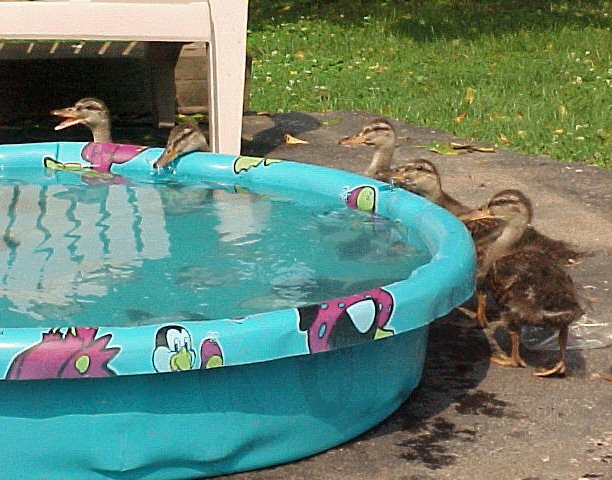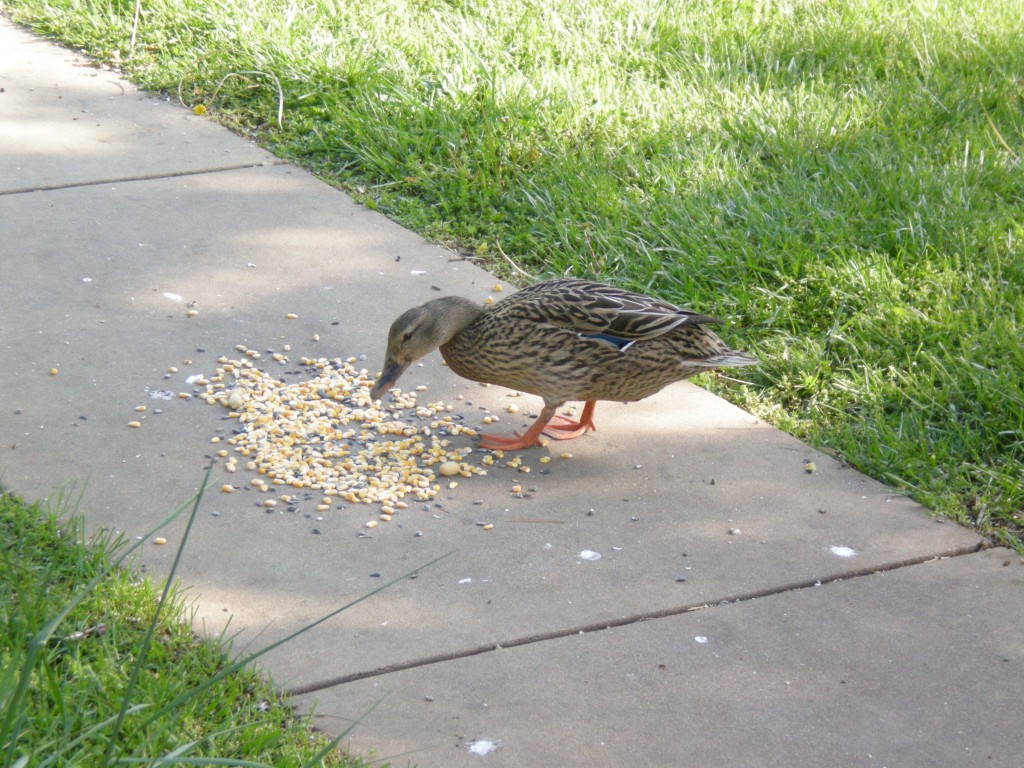For the first time in 10 years, our ducks didn’t come home this spring.
If you’ve followed my blog from early on, you’ll know that my husband and I once raised five baby Mallard ducks. (Read about it here.)
Since the average lifespan of a Mallard is about three years, I always knew this day would come. Our ducks weathered ten summers and ten winters. They eluded duck hunters, hawks, and snapping turtles. So all in all, our babies had a long, happy life.
Still, I really, really, really miss them.
From their tiny, feathered appearance when they first hatched from the incubator in our garage, to the day they flew away to the river a few months later and left us, we grew attached to those ducks. They stayed in the garage while we were at work, and in the late afternoon we’d let them out to have a wander through the grass. We bought a plastic wading pool and filled it with water, and used a net to scoop up each of the five ducklings and plopped them inside the pool for their daily swim.
They loved that wading pool. One little guy always dove immediately under the water and circled the perimeter of the pool several times at warp speed, his little webbed feet paddling like pistons.
Then there was the female we called Big Mouth, because she quacked incessantly. On an otherwise quiet summer day, you could hear her quacks echoing loudly across the river. She had a pronounced limp when she was a baby; the vet said there was nothing to be done and advised putting her to sleep. We were horrified and flatly refused.
My husband mixed some Maypo in with the duck pellets, and lo and behold – somehow, the vitamin-fortified cereal helped in Big Mouth’s eventual recovery. She still limped a bit, but more than held her own with her brother and sister ducklings.
Every spring they returned to our front yard, in the mornings and afternoons from mid-April until early June, looking for corn. We always kept a big bag of squirrel mix – corn and sunflower seeds – on hand for the ducks. They Hoovered up the corn from the sidewalk with efficient concentration until they’d had their fill.
Afterwards, the male and female ducks would pair off and waddle into the shade of the old oak in our front yard, where they’d settle themselves in the grass and watch the world go by.
Then they waddled off across the street in search of a nice, cool puddle to have themselves a drink and perhaps a bath.
I miss those ducks. But like kids do, they grew up, and left us, and went off and had families of their own. At least it’s comforting to think that, long after we’ve moved away and someone else is living in this old house by the river, there will be new baby ducklings born every spring, ready to carry on the fine, feathered tradition of their duck forebears.
Follow me on Bookbub!


